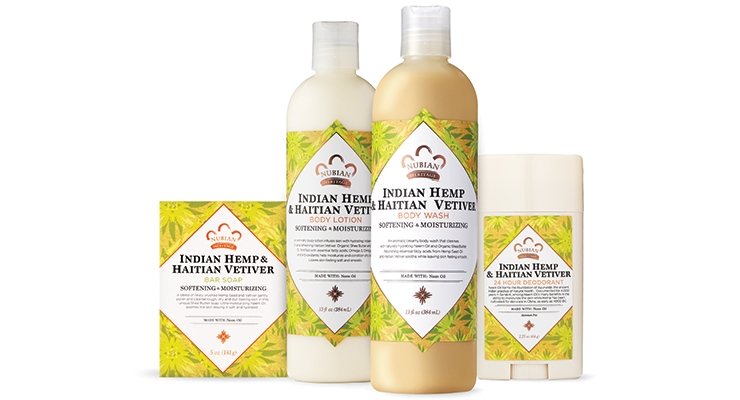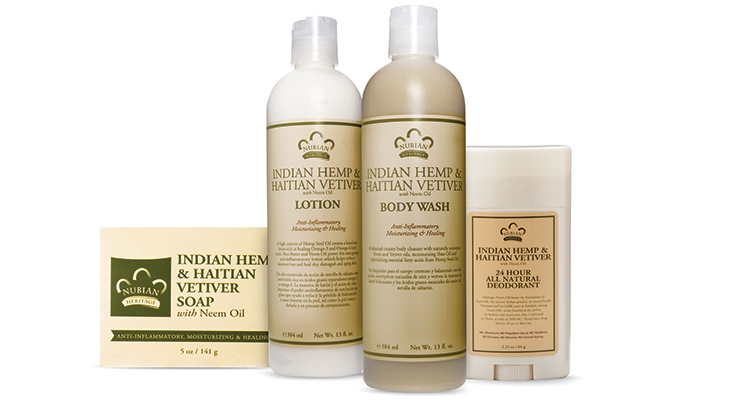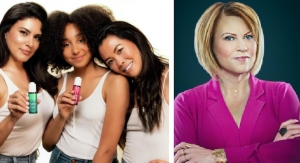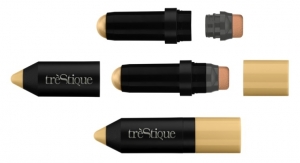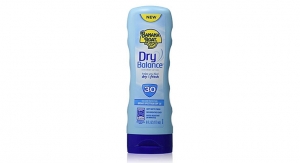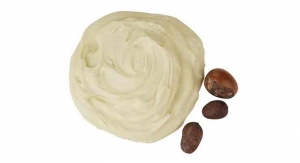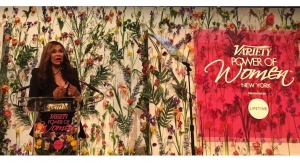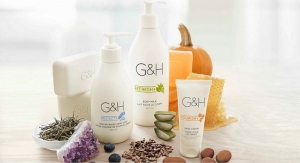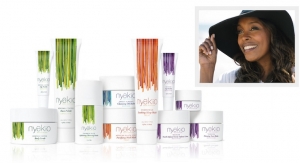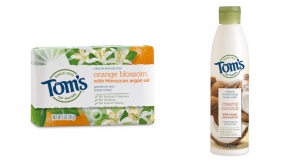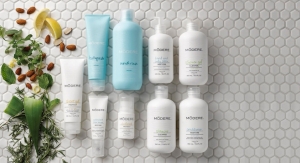Jamie Matusow, Editor-in-Chief07.26.17
Created and manufactured by Sundial Brands, Nubian Heritage is the brainchild of two former Harlem street vendors. Fresh out of college in 1992, Richelieu Dennis and Nyema Tubman set out to bring the healing traditions of African black soap and shea butter to the community they loved. Strong word of mouth and a devoted community helped build awareness of the cult beauty brand.
Guided by the legacy of ancient Nubia, “the world’s first melting pot,” Nubian Heritage continues to bring together “traditional healing practices, cultural wisdom and indigenous ingredients,” remix them and create modern wellness solutions for skin and hair. The brand’s mission is to make cultural exchange the model for transforming the global community.
Dennis and Tubman say their journey has been a long one, and it’s far from over. What began in Harlem continues globally as they empower individuals with healing traditions, rituals, and philosophies from around the world. “We’re constantly developing new products and remedies, and discovering and sharing new paths to wellness. We are dedicated to alleviating poverty in the communities that comprise our supply chain. Shea Butter is central to all our products, so that’s where we started,” they explain.
Nubian Heritage invests in women’s shea butter cooperatives in Ghana, and helps them develop self-sustaining businesses.
Nubian Heritage Debuts New Packaging
Recently, Nubian Heritage redesigned their packaging to better tell their story.
The new packaging features textile patterns that celebrate the different cultures of its global community—the healers whose time-honored recipes inspire the brand’s remedies, the places where it finds ingredients, and the people who embrace its award-winning collections. The packaging pays homage to the diversity of healing traditions and cultures that are represented in the Nubian Heritage family.
Nubian Heritage’s offerings include African Black Soap facial care, and 13 bath and body care collections with body wash, lotion, hand cream, hand & body scrub, infused shea butter, bar soap, deodorant and bath bombs. Each collection features a unique textile design, a correspnding culture and a ritual/philosophy. All in all, there are 141 total products across bath & body and hair care.
The brand’s African Black Soap collection pattern complements the ingredients’ detoxifying properties, symbolizes purity and commemorates the strong community identity textiles have in Africa, with each community having its own design. Nubian Heritage brought African Black Soap to the U.S. 25 years ago.
The Coconut & Papaya collection pattern highlights the ingredients’ renewing properties. The package symbolizes the sun and is typical of prints and textiles from the Caribbean, which feature elaborate geometric designs made in a reverse appliquè process.
Since ancient times, the coconut tree has been a vital source of nourishment for millions of tropical communities in South America, Asia, the Caribbean and Africa. Papaya has long been revered for its skin rejuvenating properties throughout South America.
Abyssinian Oil & Chia Seed bath and body care, which complements the ingredients’ revitalizing properties, and the package pattern, symbolizes faith. It honors the rich textile history of Ethiopia. Originating in Nubia, Abyssinian Oil was made famous by the Queen of Sheba, the ruler of ancient Ethiopia. Chia Seed Oil and Amaranth Extract, ancient superfoods, have been cultivated since the 16th century while Ginseng, rich in vitamins, minerals and phytochemicals, is used in traditional Chinese medicine.
Additional lines include Goat’s Milk & Chai (Africa) – Peace; Honey & Black Seed (Middle East) – Tree of Life; Indian Hemp & Haitian Vetiver (Haiti) – Relief/Soothing; Lavender & Wildflowers (France) – Bloom/Growth; Lemongrass & Tea Tree (South America)-Healing /Shining Sun; Mango Butter (India) – Passion/Inspiration; Patchouli & Buriti (Thailand) – Happiness; and Raw Shea Butter (Africa) – Growth/Empowerment.
All plastic packaging is #2 HDPE, containing 25% Post Consumer Resin, and is recyclable in nearly all programs. All bar soaps are made with RSPO certified Palm Oil.
More info: www.nubianheritage.com
Guided by the legacy of ancient Nubia, “the world’s first melting pot,” Nubian Heritage continues to bring together “traditional healing practices, cultural wisdom and indigenous ingredients,” remix them and create modern wellness solutions for skin and hair. The brand’s mission is to make cultural exchange the model for transforming the global community.
Dennis and Tubman say their journey has been a long one, and it’s far from over. What began in Harlem continues globally as they empower individuals with healing traditions, rituals, and philosophies from around the world. “We’re constantly developing new products and remedies, and discovering and sharing new paths to wellness. We are dedicated to alleviating poverty in the communities that comprise our supply chain. Shea Butter is central to all our products, so that’s where we started,” they explain.
Nubian Heritage invests in women’s shea butter cooperatives in Ghana, and helps them develop self-sustaining businesses.
Nubian Heritage Debuts New Packaging
Recently, Nubian Heritage redesigned their packaging to better tell their story.
The new packaging features textile patterns that celebrate the different cultures of its global community—the healers whose time-honored recipes inspire the brand’s remedies, the places where it finds ingredients, and the people who embrace its award-winning collections. The packaging pays homage to the diversity of healing traditions and cultures that are represented in the Nubian Heritage family.
Nubian Heritage’s offerings include African Black Soap facial care, and 13 bath and body care collections with body wash, lotion, hand cream, hand & body scrub, infused shea butter, bar soap, deodorant and bath bombs. Each collection features a unique textile design, a correspnding culture and a ritual/philosophy. All in all, there are 141 total products across bath & body and hair care.
The brand’s African Black Soap collection pattern complements the ingredients’ detoxifying properties, symbolizes purity and commemorates the strong community identity textiles have in Africa, with each community having its own design. Nubian Heritage brought African Black Soap to the U.S. 25 years ago.
The Coconut & Papaya collection pattern highlights the ingredients’ renewing properties. The package symbolizes the sun and is typical of prints and textiles from the Caribbean, which feature elaborate geometric designs made in a reverse appliquè process.
Since ancient times, the coconut tree has been a vital source of nourishment for millions of tropical communities in South America, Asia, the Caribbean and Africa. Papaya has long been revered for its skin rejuvenating properties throughout South America.
Abyssinian Oil & Chia Seed bath and body care, which complements the ingredients’ revitalizing properties, and the package pattern, symbolizes faith. It honors the rich textile history of Ethiopia. Originating in Nubia, Abyssinian Oil was made famous by the Queen of Sheba, the ruler of ancient Ethiopia. Chia Seed Oil and Amaranth Extract, ancient superfoods, have been cultivated since the 16th century while Ginseng, rich in vitamins, minerals and phytochemicals, is used in traditional Chinese medicine.
Additional lines include Goat’s Milk & Chai (Africa) – Peace; Honey & Black Seed (Middle East) – Tree of Life; Indian Hemp & Haitian Vetiver (Haiti) – Relief/Soothing; Lavender & Wildflowers (France) – Bloom/Growth; Lemongrass & Tea Tree (South America)-Healing /Shining Sun; Mango Butter (India) – Passion/Inspiration; Patchouli & Buriti (Thailand) – Happiness; and Raw Shea Butter (Africa) – Growth/Empowerment.
All plastic packaging is #2 HDPE, containing 25% Post Consumer Resin, and is recyclable in nearly all programs. All bar soaps are made with RSPO certified Palm Oil.
More info: www.nubianheritage.com

